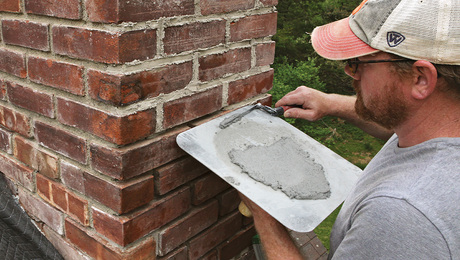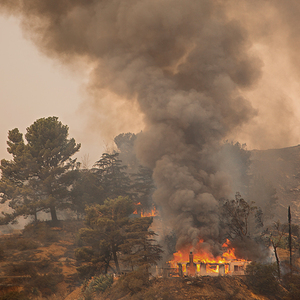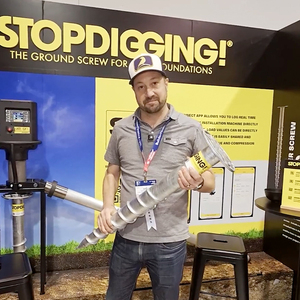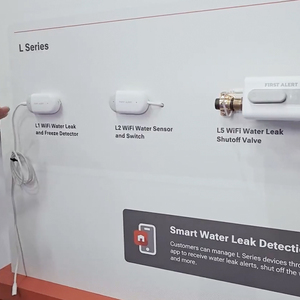Shut off valve on propane line
I’m getting ready to install a new water heater and realized the only way to shut off the propane is all the way back at the tank. I figured while I had the gas turned off it might make sense to install a shut off valve on the main line coming into the house. That way in the future if I have to do any work on the water heater or the boiler I can just flip the valve to shut off the gas. Is there a reason why I shouldn’t do this? It seems to me that a valve on the line inside the basement is such an obvious way to be able to shut off the gas that the fact that this has not already been done indicates there must be some reason not to do it. Any help would be appreciated.



















Replies
Around here the usual is for the line from the tank to come up out of the ground at the outside of the foundation, and then go into the basement or crawl space. There is a second stage regulator on the outside of the house, and a ball valve for shutoff just upstream of that regulator. I'd rather go outside to shut off the gas in an emergency, rather than down into the basement.
My line is set us exactly as you described. I was thinking of installing the valve in the basement more for the convenience factor than for safety reasons. In order to get to the valve on the regulator outside of the house I need to lift a removable panel off my deck. In the winter this most likely would be covered with snow and ice and is difficult to remove, which means crawling under the deck to get to the valve. In an emergency I would most likely have to get to the tank to shut off the gas. Thanks for the reply.
There's no harm in putting a valve in the basement. I would make sure there is one outside that's easily accessible at all times. Some of my customers have buried tanks and the last thing you want is to have to find the valve and shut it off in a hurry.
I also have a buried tank but the valve on the tank is easy enough to access in an emergency. Again, I'm thinking of the indoor valve strictly for convenience. My main concern, which I think you've answered, was if there was a spcific reason NOT to put a valve somewhere along the main line inside the house. Thanks for your help.
I have three valves in my crawl space that control gas flow. They are all right where the main line enters. One shuts off flow to the WH, one to the kitchen range, one to the heating stove. They are there so that I can shut off one branch of piping and make alterations if I need to, without affecting the other branches. Valves are your friend.
That makes a lot of sense. Thanks for your help.
There should be a shutoff right by each appliance.
William the Geezer, the sequel to Billy the Kid - Shoe
Bill, there is a shut-off right by each appliance. In this case I am removing two old water heaters and installing just one new one, so I have to turn main gas line off to remove the junction where the line splits and redirect it to just the one appliance. If I had a shut off valve in the house I wouldn't have to crawl under the deck or go up to the tank to turn off the gas. I figured since I'll have the gas off anyway now would be a good time to install the extra valvae.
Up here if I remember correctly that there MUST be a shut off before entering a building. When the pipe is buried usually starting at the tank there must be a shut off and when it pops out of the ground, usually at the building, there has to be a shut off.
Of course your regulations may be completely different.
roger
Roger, I don't know for sure, but I'm guessing since I have the same setup you describe, the regulations for me are the same. I'm in Vermont, in case you were wondering.
It probably is the same. I have a gas fitters licence but it's been awhile since I've had to look up that part of the code but I'm pretty sure it is the way I explained previous.
These shut off locations are meant for easy access for when you are running away or when the fire dept comes.
I know of one case where the fire dept couldn't get the lid open at the main propane tank( where a shut off is) because of a big honking padlock.roger
No padlocks here! And I even have to keep the tank clear of snow and shovel a path for the delivery guy or they get really cranky and in some cases won't make a delivery if the snow is too deep and they can't get to the tank.
The UPC requires a shut-off within 6ft. of the appliance, I think that most codes are the same. Be careful working with propane, it is much less forgiving than natural gas, any leak causes it to pool at floor level.
"If all else fails, read the directions"
because of a big honking padlock.
Our local FD has some big honking bolt cutters !
Lockout devices are illegal here unless they are used to lock an energy scource in the off position.
A building that sits on small lot at the corner of our facility caught fir last summer. The FD needed to get pumpers and ladder truck into our secure lot to fight the fire. Locks and chains didn't slow them down a bit.
If I remember correctly our big residential tanks come with hinged lids which have the tabs where you can put a padlock( or just a wire) through. Under the lid is usually the regulator(if the tank isn't too far from the house) and the shut-off.
I lived in a small farming community and the story was related to me by one of the volunteer firemen. You're right that have several bolt cutters always on hand but this one was evidently a real toughie.
I just checked my old Propane Code and couldn't find anything about not locking down the lid but it could be in a different regulation that I don't have.
You raised a good point.
To directly answer the question...
There is NO reason why you should NOT put a valve in the line, where you want to.
~~~
As long as you have the correct valve/s as required by code... already there... The only factors that you need to be concerned with, are...
Use a ball valve that is intended for gas.
Install the valve correctly.
And put the extra valve wherever is most convenient for you. As long as putting the valve where you want it, doesn't create a hazard.
Thanks for the reply. Your response makes a lot of sense and was helpful. Andy